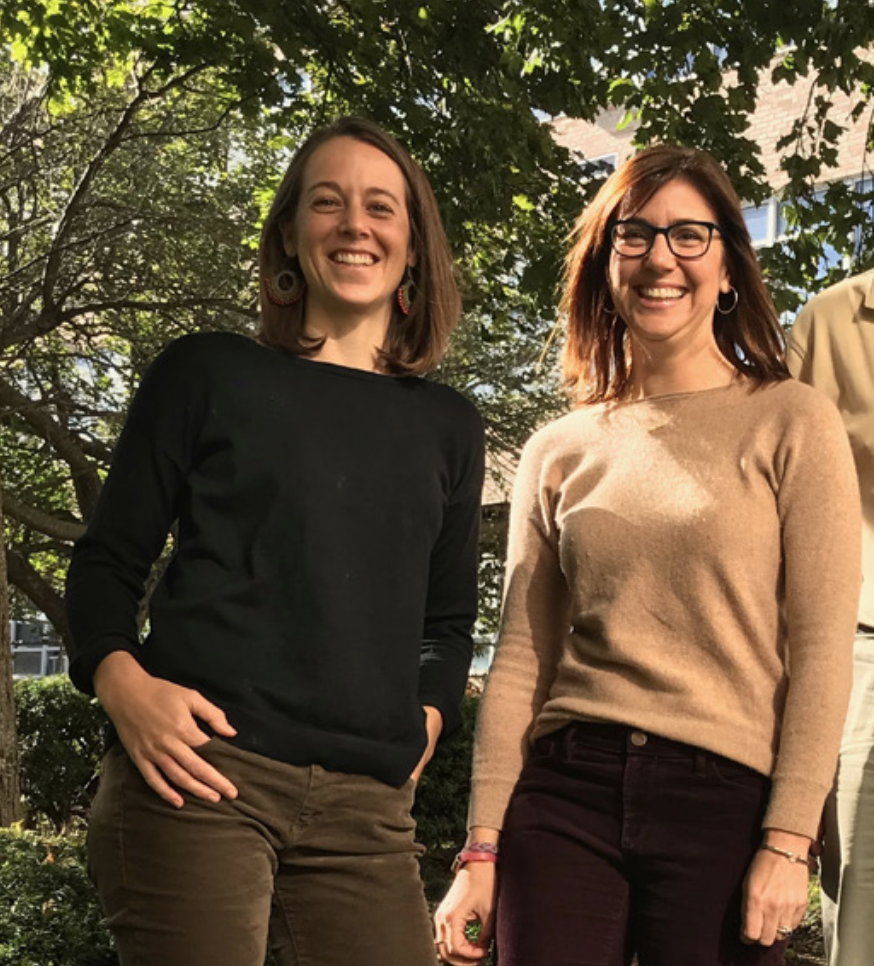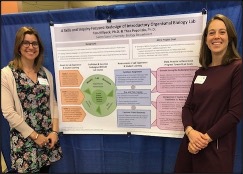| Contact |
JIllian Willis
|
|---|


In October 2021, Salem State Biology Professors Thea Popolizio and Tess Killpack published a “Teaching Tools and Strategies,” article in CourseSource, an open-access journal of peer-reviewed teaching resources for undergraduate biology and physics. Professor Popolizio spoke to the Center for Research and Creative Activities about the article, titled “A Remote-Learning Framework for Student Research Projects: Using Datasets to Teach Experimental Design, Data Analysis and Science Communication.”
The article came about as Popolizio and Killpack began navigating remote learning for the BIO131 “Introduction to Organisms” lab course throughout the pandemic. The lab course typically culminates in group research projects that are fully designed, carried out, and presented by the students.
In refining the research project for a remote setting, Popolizio and Killpack wanted to maintain the sense of scientific inquiry but had to do so in the absence of hands-on group data collection. They created a 5-week remote project in which students used data collected from previous in-person BIO131 student groups. The project entailed synchronous group work on Zoom to complete guided documents each week for experimental planning, data analysis, primary literature review, scientific poster preparation, and group presentation. The students completed a written project summary independently at the end of the semester.
Popolizio noted, “We designed this [set of guided assignments] out of urgent need in the pandemic and -- as we refined it, and made it this really tight, usable, and customizable thing -- we realized it was the perfect project to submit to CourseSource.”
To place the project into context, the CourseSource article presents background from the literature about remote learning and scientific skill building with online sources. Along with a detailed description of the project, the authors provide supplementary materials via Google Docs that include each of the project documents provided to students in the course. The Google Doc format allows other educators to easily modify the lesson to make it better suited to their own classes. All materials can be freely accessed from the CourseSource website.
Popolizio spoke to how useful this resource can be, noting that “online learning is becoming more and more necessary. It was necessary in these past couple of years, but I don’t see it going away. It can also be used in non-online classes; students could do all of the experimenting in the lab and then use the documents we’ve prepared to guide them through the process of doing scientific research.”
Popolizio and Killpack have an ongoing project funded by the David Foundation titled “ACES: Redesigning Whole Courses for Active Engagement of Students” that provided funds to redesign the whole BIO131 lab course and measure student growth from the beginning to end of the semester. In addition to measuring learning gains in data analysis and scientific skills, they distribute a pre-and post-survey to explore more qualitative questions on how students see themselves as scientists and assess their sense of belonging to the institution and to science. Killpack and Popolizio are analyzing the data and preparing a manuscript for publication in the near future.
Congrats to Professor Popolizio and Professor Killpack on this new publication. We see and appreciate the hard work you have put into creating a valuable remote learning experience! We are looking forward to seeing more of both of your work in the future.
--
Learn more about the Center for Research and Creative Activities. All Salem State University students, faculty, and staff are invited to email their research to be featured by the CRCA: ssu-research@salemstate.edu.
